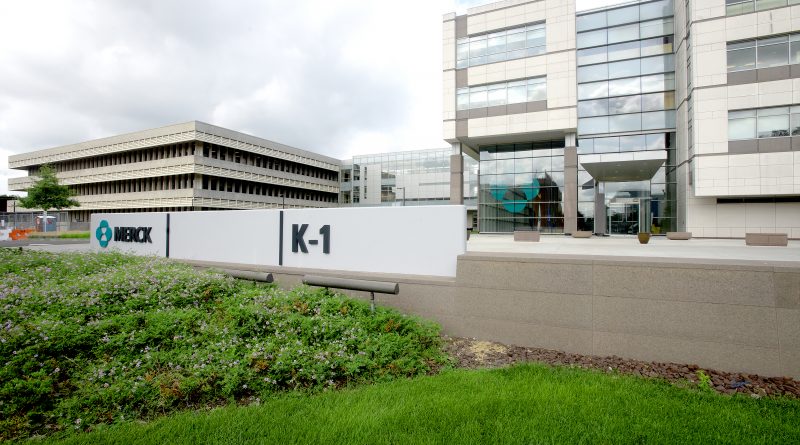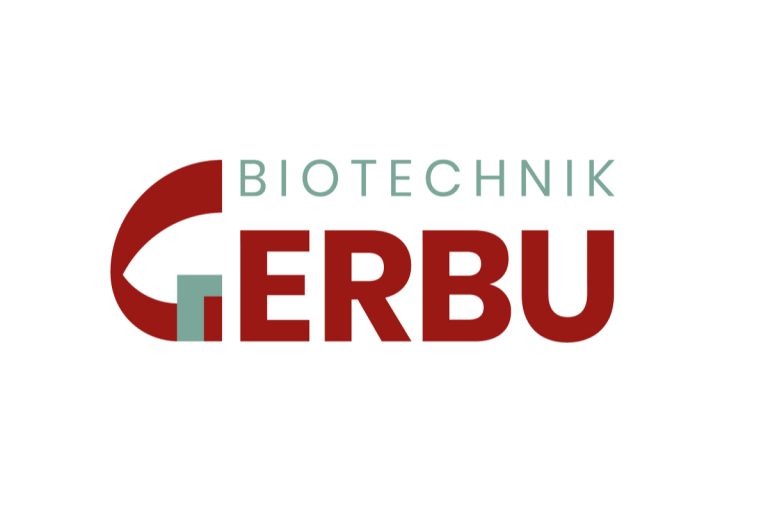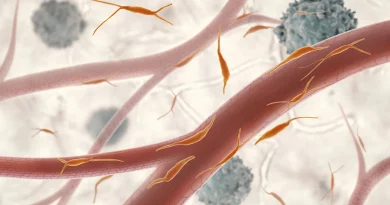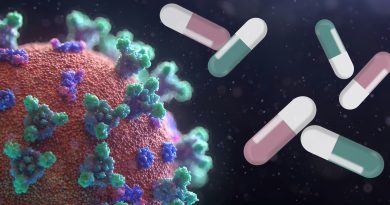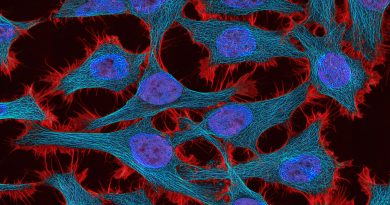Phase 3 Results for Adjuvant Treatment with Merck’s KEYTRUDA® Show Superior RFS in Patients With Resected High-Risk Stage II Melanoma
Merck (NYSE: MRK), known as MSD outside the United States and Canada, announced on Saturday the first results from the Phase 3 Clinical Trial KEYNOTE-716, in which adjuvant treatment with KEYTRUDA, Merck’s anti-PD-1 therapy, has shown a statistically significant and clinically meaningful improvement in recurrence-free survival (RFS), compared to placebo in patients with resected high-risk stage II melanoma, which was t primary endpoint of the trial. KEYTRUDA is the first anti-PD-1 therapy to demonstrate this.
The First Anti-PD-1 Therapy to Improve RFS in the Adjuvant Setting for Resected High-Risk Stage II Melanoma
At the first interim analysis, KEYTRUDA reduced the risk of disease recurrence or death by 35% (HR=0.65 [95% CI, 0.46–0.92]; p=0.00658) compared to placebo. Median RFS had not been reached for either group at the time of this analysis. After 14.4 months follow-up, 11.1% (n=54/487) of patients on KEYTRUDA had recurrence or died compared with 16.8% (n=82/489) of patients on placebo, with fewer distant recurrences with KEYTRUDA (4.7%, n=23/487) versus placebo (7.8%, n=38/489).
Dr. Roy Baynes, senior vice president and head of global clinical development, chief medical officer, Merck Research Laboratories stated:
“We conducted KEYNOTE-716 to explore whether adjuvant KEYTRUDA, an approved adjuvant treatment option across all resected stage III melanoma, could prolong recurrence-free survival for patients with resected high-risk stage II disease. These findings of a significant 35% reduction in the risk of disease recurrence or death compared to placebo support earlier intervention with KEYTRUDA. We are pleased that these findings have been accepted for priority review by the FDA, and we are grateful to the investigators and patients for their involvement in this important study.”
The safety profile of KEYTRUDA was consistent with previously reported studies in patients with solid tumors. Treatment-related adverse events (TRAEs) occurred in 79.9.% of patients who received KEYTRUDA versus 60.9% of patients who received placebo, while Grade 3 or 4 TRAEs were observed in 16.1% versus 4.3% of patients, respectively.
Dr. Jason Luke, director, Cancer Immunotherapeutics Center at UPMC Hillman Cancer Center said:
“Patients diagnosed with stage IIB and IIC melanoma have a high risk of recurrence after complete resection and similar five-year survival outcomes as those with stage IIIA and IIIB disease, but because there are no systemic treatment options available, the standard of care is observation. The encouraging results from KEYNOTE-716 show that adjuvant treatment with pembrolizumab was associated with a significant reduction in disease recurrence or death versus placebo for patients with resected high-risk stage II melanoma and, if approved, may offer these patients a new treatment option.”
These late-breaking data from KEYNOTE-716 are being presented today at the European Society for Medical Oncology (ESMO) Congress 2021 and are being featured as part of the official ESMO press program.
Detecting cancer at an earlier stage might give patients a better chance of long-term survival. Many cancers are considered most treatable and potentially curable in the earliest stage of the disease. Building on the strong understanding of the role of KEYTRUDA in later stage cancers, Merck is studying KEYTRUDA in earlier disease states, with around 20 registrational studies ongoing across multiple cancer forms.
Phase 3 KEYNOTE-716 Trial Design
KEYNOTE-716 is a randomized, two-part, Phase 3 trial evaluating KEYTRUDA for the adjuvant treatment of patients with resected high-risk stage II melanoma. The primary endpoint is RFS, and the secondary endpoints include distant metastasis-free survival, overall survival and safety. Exploratory endpoints included quality of life.
In Part 1 of the study, which was double-blind, patients age 12 and older were randomized (1:1) to receive KEYTRUDA, 200 mg by intravenous [IV] infusion for adult patients or 2 mg/kg [200 mg maximum] by IV for pediatric patients, (n=487) or placebo (n=489) every three weeks for up to 17 cycles (approximately one year). In Part 2 of the study, which was open-label, eligible adult and pediatric patients received up to 35 additional cycles (approximately two years) of KEYTRUDA. Eligibility for Part 2 included patients who recurred after receiving placebo or completed 17 cycles of KEYTRUDA; patients on KEYTRUDA must not have experienced disease recurrence within six months of completing treatment.
Among enrolled patients in each treatment group, approximately 64% had stage IIB disease (n=309/487 for KEYTRUDA; n=316/489 for placebo), and approximately 35% had stage IIC disease (n=171/487 for KEYTRUDA; n=169/489 for placebo).
About Melanoma
Melanoma is known as the most serious type of skin cancer. It is characterized by the uncontrolled growth of pigment-producing cells. The rates of melanoma have been rising over the past few decades, with nearly 325,000 new cases diagnosed worldwide in 2020. The recurrence rates for resected melanoma are estimated to be 32-46% for patients with stage IIB and stage IIC and 44-74% for patients with stage III. The five-year survival rates (AJCC eighth edition) are estimated to be 87% in stage IIB, 82% in stage IIC, 93% in stage IIIA and 83% in stage IIIB.
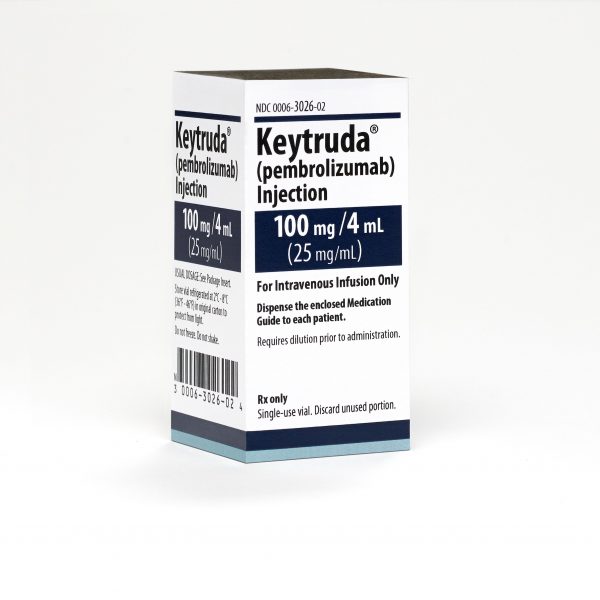
(Carton 2015 Copyright © 2009-2021 Merck Sharp & Dohme Corp., a subsidiary of Merck & Co., Inc., Kenilworth, N.J., U.S.A. All rights reserved.)
About KEYTRUDA® (pembrolizumab) Injection
KEYTRUDA is an anti-programmed death receptor-1 (PD-1) therapy that works by increasing the ability of the body’s immune system to help detect and fight tumor cells. KEYTRUDA is a humanized monoclonal antibody that blocks the interaction between PD-1 and its ligands, PD-L1 and PD-L2, thereby activating T lymphocytes which may affect both tumor cells and healthy cells.
Merck (MSD) has the largest pharma immuno-oncology clinical research program. Currently there are more than 1,600 trials studying KEYTRUDA across a wide variety of cancers and treatment settings. The KEYTRUDA clinical program seeks to understand the role of KEYTRUDA across cancers and the factors that may predict a patient’s chances of benefitting from treatment with KEYTRUDA, including exploring several different biomarkers.
For more information, visit www.merck.com
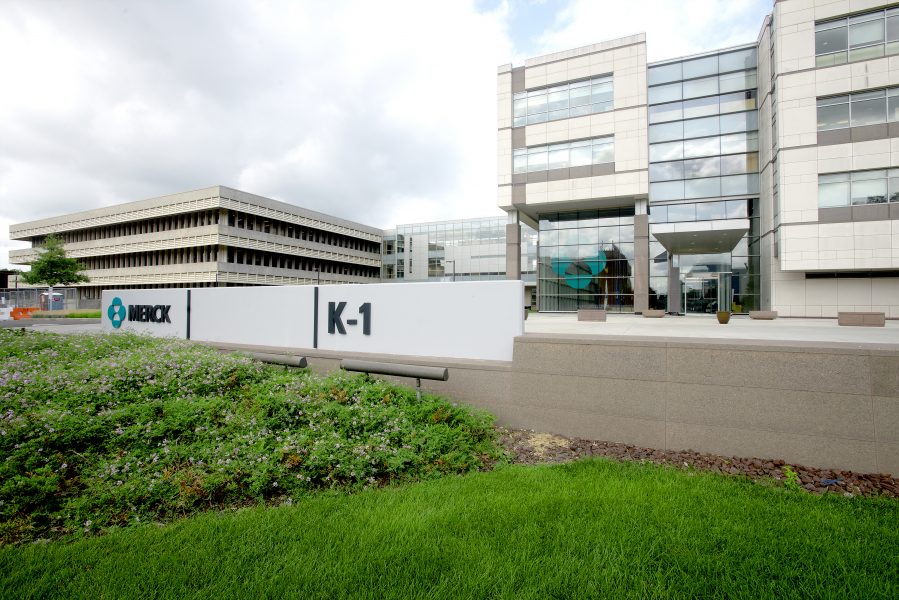
Original Source – Press Release – KENILWORTH, N.J.–(BUSINESS WIRE)–Merck (NYSE: MRK): https://www.businesswire.com/news/home/20210918005009/en/Merck’s-KEYTRUDA®-pembrolizumab-Demonstrated-Superior-Recurrence-Free-Survival-RFS-in-Patients-With-Resected-High-Risk-Stage-II-Melanoma-Compared-to-Placebo-in-the-Adjuvant-Setting
Recommended Companies
Ad
More Headlines

